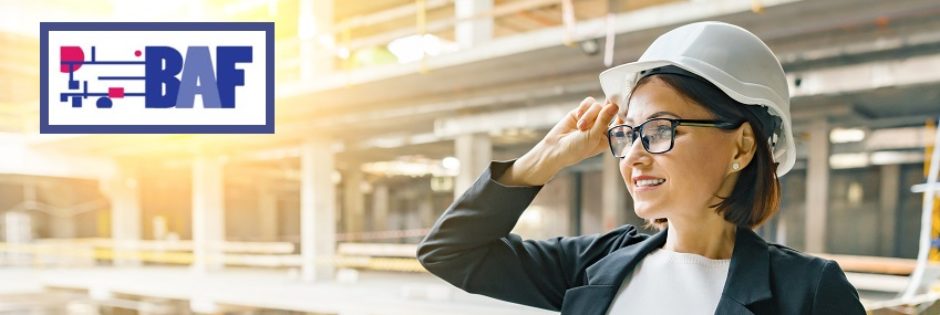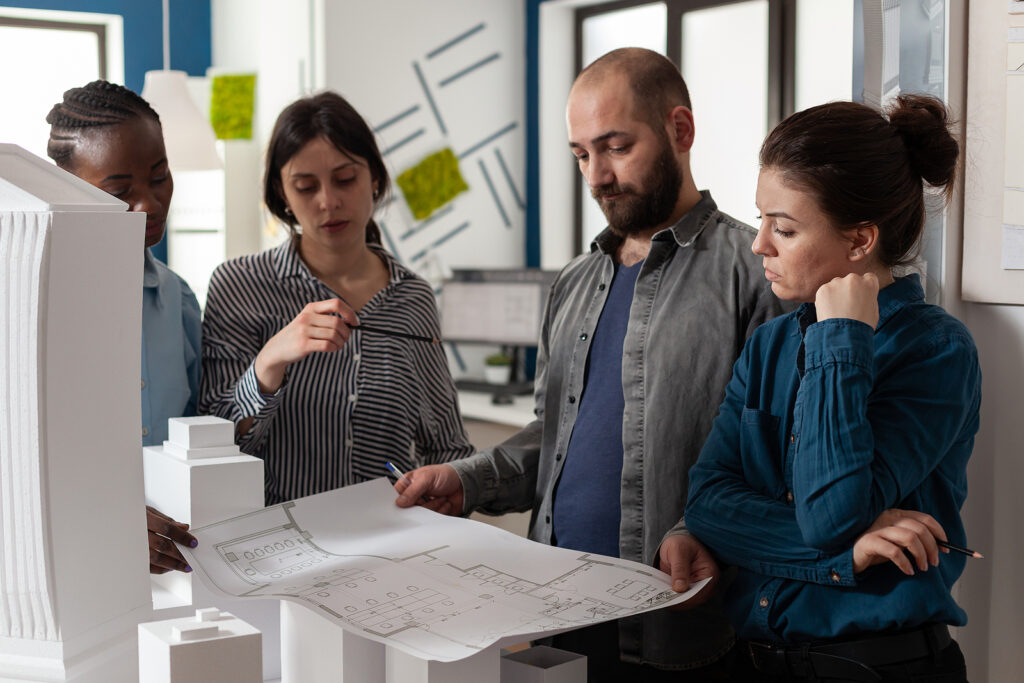Are you asking yourself, “What should I expect after hiring a commercial construction management company in Indiana?” If so, you are in the right place. Continue reading to learn exactly what a commercial construction manager can do for you and your upcoming project.

Commercial Construction Management Services
When you have a commercial construction project on the books, your first step should be to hire a commercial construction management company. A commercial construction managing team can take your vision and turn it into reality, working with you every step of the way from start to finish. If you want to increase cost efficiency, reduce liability, and maintain control over your build, then a commercial construction manager is the right hire for you.
The Goal of a Commercial Construction Manager
Your commercial construction management company takes on your best interest by acting as your advocate through the entire design and build process. Ultimately, their goal is to complete your project to your exact specifications, within your budget, and in a convenient time frame.
Commercial construction managers work on-site every day, overseeing and directing every single task, including budgeting, space planning, zoning, permitting, compliancy, building codes, contract negotiations, design plans, subcontractor hiring, material procurement, construction work, equipment procurement, white glove inspections, post-occupancy maintenance, and much more.
A commercial construction manager acts as a single point of communication and accountability, for both you and all the teams working on your project. Not only does this allow for streamlined transmission and consultation, but it abates disputes of liability by establishing a clear and concise chain of command. Their services also prevent unforeseen infrastructural issues, work delays, scheduling errors, unanticipated setbacks, inefficiency, waste management, and added expenses. They also ensure that subcontractors never deviate from your original specifications, which is a bad practice that unfortunately occurs too often in the construction industry.
How to Get Started With Commercial Construction Management
All of these benefits directly contribute to your bottom line. The sooner your project is completed, the sooner you can open your doors for business and start amassing income. Are you wondering how you can hire a dependable commercial construction manager in Indianapolis? Well, you have already found the right professionals to get your project done right, ahead of schedule and under budget. Here at BAF Corporation, our success and proven track record in commercial construction management is largely due to our acute attention to detail and our unwavering dedication to delivering the highest standards of excellence for every project. Our results pave the way for your business’s successful future.
Ready to get started? Just want to learn more? We are here to help! Contact us at 317-253-0531 to learn more about our professional construction management services in Indianapolis. We serve all corporate, commercial, and industrial industries in Central Indiana.
Related Posts:
Do I Need a Construction Manager for My Commercial Remodel?
What Commercial Construction Management Can Do For You
The Planning and Development Process of a Commercial Construction Project


